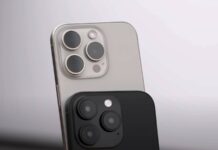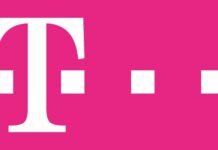Un grup de fosti angajati ai companiei Apple a comentat recent intr-un thread de discutii publicat pe celebra retea Quora, ei vorbind despre masurile de securitate pe care Apple le-a impus inca de la infiintare si pana in prezent, cateva detalii fiind oferite si despre compania NeXT. Practic Steve Jobs a impus majoritatea regulilor, insa viata nu a fost dura de la bun inceput la Apple sau NeXT, fondatorul companiei preferand sa lase oamenii sa lucreze liber pana in momentul in care primele leak-uri au aparut pe piata si era necesara oprirea scurgerii de informatii.
La Apple exista o echipa de securitate foarte bine organizata care monitorizeaza in mod constant activitatea angajatilor, iar cea mai mica abatere poate fi un motiv pentru conecdierea unei persoane. Angajatii care lucreaza la proiecte importante nu pot oferi detalii despre ele altor angajati si nici macar rudelor, sotilor sau sotiilor, iar daca ar face un asemenea gest si Apple ar afla, ei ar fi concediati. In interiorul Apple exista acum o cultura a pastrarii secretelor, cultura pe care toata lumea o cunoaste si o respecta, avand frica concedierii.
Practic Steve Jobs a impus masuri foarte dure privind securitatea dupa revenirea in fruntea companiei Apple deoarece scurgerile de informatii aproape falimentasera compania. Acum majoritatea angajatilor traiesc cu frica, ca furnizarea de informatii ii poate intr-adevar lasa fara un loc de munca, insa chiar si asa apar destule scurgeri in fiecare an. Inainte sa inchei, va recomand sa cititi ultimul comentariu din quote in care se vorbeste despre Pentagonul caruia nu ii prea pasa despre secretele Apple.
Brian Hoshi: Having worked at Apple for a few years, I can say that the need for secrecy is mostly ingrained in the corporate culture to create innovative and revolutionary products from within the otherwise bland and evolutionary markets that Apple chooses to compete in. The secrecy is upheld throughout the organization knowing that there is a corporate security team pretty much looking over your shoulder at all times and where even minor violations are grounds for immediate termination. There’s nothing to “fear” at Apple as long as you are able to follow these very basic rules of conduct.
Ken Rosen, Partner, Performance Works: In the early days, everything was open to everyone. There was even a binder in the CFO’s office with everyone’s salary. We were told we could go check it out any time. Few cared to. Steve told us, “Inside NeXT, everything is open. Outside NeXT, we say nothing.” In wonderful Steve fashion, he added, “This will continue until the first leak. As soon as we prove we can’t keep a secret, we go back to being like every other company.” No one wanted to be the one to kill the open goose.
Kim Scheinberg (on Apple’s switch to Intel): No one has ever reported that, for 18 months, Project Marklar existed only because a self-demoted engineer wanted his son Max to be able to live closer to Max’s grandparents.
Robert Bowdidge: I couldn’t tell my wife anything; she knew I was working in a different building across the street and pulling very late nights, but she didn’t know what I was doing. When I had to travel to Manchester UK to work with more of the Transitive folks, she asked to come along. I had to say “no way” – she worked for IBM at the time, and I knew that the project lead would freak at the thought of our chip vendor learning about the move.
Chris Connors: Even within the company the culture manifests itself in interesting ways. If you have friends in other groups, they will never ask you what you are working on. They know better, and the courtesy is reciprocated. So usually conversations are personal, or about outside elements, or someone registering complaints about how the shipping version of your product works now (wink wink). “Have you filed a RADAR for that?”
Anonymous: All prototypes are laser marked with serial numbers and tracked by a central tracking system (called iTrack). Physical security is also highly prioritized, with prototypes required to be locked up when not in use. Access to prototypes is also restricted, and the default assumption within the company is that your coworkers do not know what you’re working on.
Robert Scoble: My brother in law used to work there. But David is right, this has always been part of the culture. Back in 1977 when Apple was a one-building startup they had a sign in the lobby that said “loose lips sink ships.”
And here’s how one reporter did get a secret out of Apple:
Adam Banks: I was editing MacUser (UK) in 1998 when rumours surfaced that Apple was working on a completely new kind of Mac. By a series of flukes, we became the first magazine to print what turned out to be a pretty accurate description of the machine a couple of months ahead of its launch as the iMac. We got the details from someone who worked at a third party site where Apple had seeded a test unit. Probably safe by now to mention what the site was. It was the Pentagon. Compared to the real secrets they were keeping, when it came to some plastic PC they’d been asked not to talk about, I suspect nobody gave a shit.

















